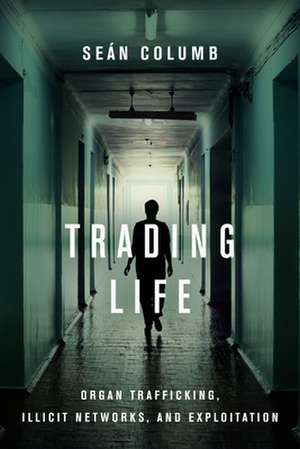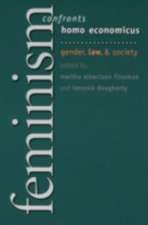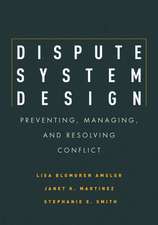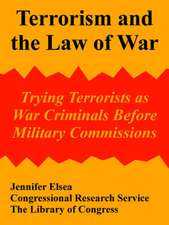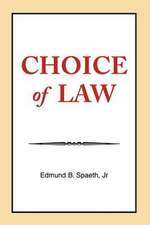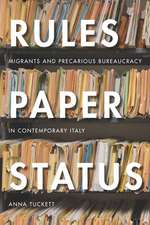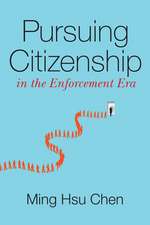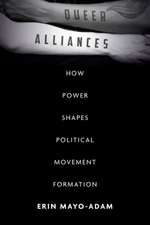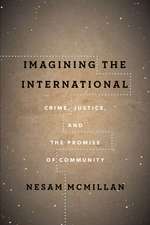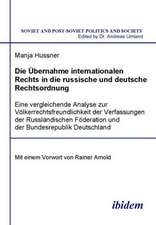Trading Life – Organ Trafficking, Illicit Networks, and Exploitation
Autor Seán Columben Limba Engleză Paperback – 20 iul 2020
This groundbreaking book investigates the emergence and evolution of the organ trade across North Africa and Europe. Seán Columb illuminates the voices and perspectives of organ sellers and brokers to demonstrate how crime and immigration controls produce circumstances where the business of selling organs has become a feature of economic survival.
Drawing on the experiences of African migrants, Trading Life brings together five years of fieldwork charting the development of the organ trade from an informal economic activity into a structured criminal network operating within and between Egypt, Libya, Sudan, Eritrea, and Europe. Ground-level analysis provides new insight into the operation of organ trading networks and the impact of current legal and policy measures in response to the organ trade. Columb reveals how investing financial and administrative resources into law enforcement and border securitization at the expense of social services has led to the convergence of illicit smuggling and organ trading networks and the development of organized crime.
Trading Life delivers a powerful and grounded analysis of how economic pressures and the demands of survival force people into exploitative arrangements, like selling a kidney, that they would otherwise avoid. This fascinating and accessible book is a must-read for anyone interested in migration, organized crime, and exploitation.
| Toate formatele și edițiile | Preț | Express |
|---|---|---|
| Paperback (1) | 170.24 lei 3-5 săpt. | +16.91 lei 7-11 zile |
| Wiley – 20 iul 2020 | 170.24 lei 3-5 săpt. | +16.91 lei 7-11 zile |
| Hardback (1) | 646.13 lei 6-8 săpt. | |
| MK – Stanford University Press – 20 iul 2020 | 646.13 lei 6-8 săpt. |
Preț: 170.24 lei
Nou
32.58€ • 35.38$ • 27.37£
Carte disponibilă
Livrare economică 01-15 aprilie
Livrare express 18-22 martie pentru 26.90 lei
Specificații
ISBN-10: 1503612554
Pagini: 224
Dimensiuni: 168 x 230 x 14 mm
Greutate: 0.34 kg
Editura: Wiley
Cuprins
The introductory chapter provides contextual background on the organ trade and outlines the key themes and arguments in the book. The current legal and policy response to the organ trade is critically examined at the international level. This analysis leads to an explanation of how law and policy produce and construct vulnerability to exploitation in organ markets. Egypt is introduced as the main research site, where in-depth narrative interviews were carried out with organ sellers, brokers, and transplant professionals.
Chapter 2 examines how an illegal market in organs emerged in the Egyptian-Sudanese context. Contrary to popular opinion, the organ trade is not a direct consequence of a global shortage in organs. Rather, the trade in organs is causally related to the transfer of transplant capabilities to the global South. Accordingly, the commercial expansion of the transplant industry is linked to the emergence of organ trading as an economic activity. The organ trade is thus better understood as an informal economy activity as opposed to a human trafficking offense.
The findings in Chapter 3 reflect personal encounters with Sudanese (North and South) nationals who sold or arranged the sale of kidneys. Their accounts provide unique insights into the organization and activities of organ trading networks in Cairo and the political and social arrangements that compel people to consider selling a kidney.
Chapter 4 examines the background conditions and legal structures that underpin exploitative relations in organ markets. Although some of the study respondents were physically coerced into organ removal, it is exploitation experienced at the structural level that ultimately pushes people into organ sale. In this regard, the oppressive processes of exploitation that position migrant populations as organ sellers in Cairo are explored through the social and legal context in which migrants, asylum seekers, and refugees have sold a kidney. The wider implications of legal measures established in response to reports of organ trafficking are considered.
Chapter 5 engages with the narratives of African migrants who attempted to make the journey to Europe using irregular routes. Unable to finance the cost of travel, people smugglers (referred to as samsara by the respondents) encouraged them to sell a kidney to raise the necessary capital. The experiences of the Sudanese, Eritrean, and Ethiopian migrants interviewed in Cairo are used to examine the impact of crime and immigration controls on informal market dynamics and to explore the convergence of smuggling and organ trading networks in Cairo's informal economy.
Chapter 6 explores how changes to the regulatory environment influenced the level of physical violence involved in the organ trade and the organizational structure of a criminal group operating within and between Khartoum, Sudan, and Cairo, Egypt. The criminal organization described in this chapter should not be taken as representative of the organ trade as a whole, as it exists in Egypt or elsewhere. It does, however, signal a need for policy change to prevent the development of more pernicious forms of organized crime.
The adverse effects of crime and immigration policies suggest that more far-reaching legal reforms are needed with regard to the organ trade and to other forms of exploitation nominally defined as trafficking offenses. In this final chapter alternative regulatory approaches beyond criminal sanction are explored.
